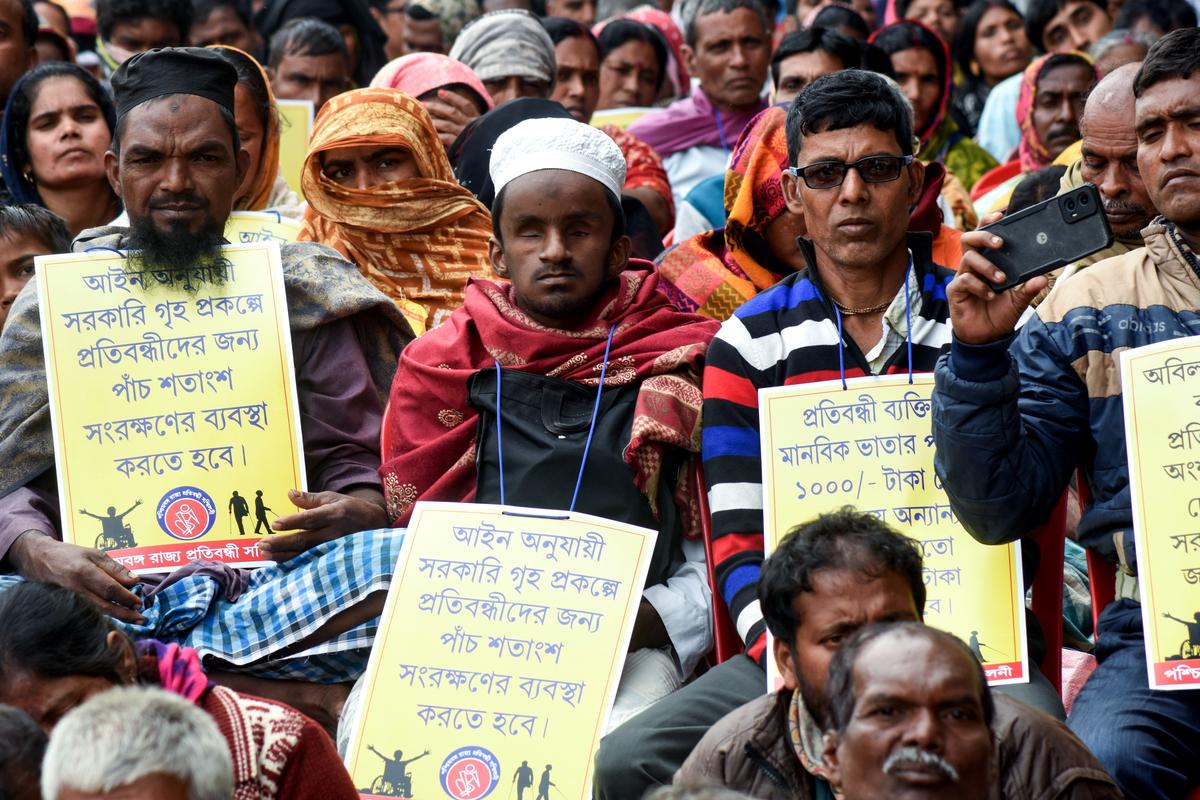[ad_1]
India’s National Medical Commission’s (NMC) alleged non-inclusion in its medical curriculum of disability and queer rights is at the forefront of a commentary piece. One step forward, two steps back: urgent priorities to embed disability and queer health in medical education systems published online in The Lancet Regional Health — Southeast Asia. The authors point to this sustained and glaring absence, which highlights the need to introduce a holistic, inclusive medical syllabus.
The commentary also notes that on the global front, out of the 110 Lancet Commissions, aside from mental health and the Holocaust, there is no dedicated commission for disability or the queer community.
In India, the mandatory inclusion of disability rights as disability competencies in India’s new medical curriculum in 2019 was highlighted as one of the 17 lighthouse initiatives by UN India during the SDG mid-point review. “Currently, queer affirmative and inclusive access to medical care remains a distant dream,’’ note the authors.

A protest on ‘International Day of Persons with Disabilities’, in Kolkata.
Hampers human rights
Explaining why the exclusion, both at the national and global level, will continue to hamper human rights one of the authors of the commentary, Satendra Singh from the Department of Physiology, University College of Medical Sciences & GTB Hospital, University of Delhi, said Lancet Commissions are science-led, international, and multidisciplinary collaborations aimed at achieving transformational change, with a particular focus on policy and political action. “Their evidence-based recommendations provide critical data to influence policymakers in revising health policies or improving practices. Currently, there are 1.2 billion young people aged 15 to 24 years, accounting for 16% of the global population. A similar proportion (16%) of people globally experience disability, with more individuals joining this group every year,’’ said Dr. Singh.
India has among the highest number of road accident fatalities worldwide (as of 2022); additionally, it is recognised as the “diabetes capital of the world,” where complications such as gangrene, limb loss, and ocular conditions leading to blindness significantly contribute to disability.
Also historically, both the disability and transgender communities have experienced mistrust toward the medical establishment, said Dr. Singh, adding that these two groups share similar vulnerabilities, which contribute to health inequities and undermine the Agenda 2030 goal of “leaving no one behind.” He stated that things will only change when voices from these two communities are part of these Lancet Commissions; otherwise, it would remain mere lip service.
India currently has the highest number of medical colleges in the world, producing future doctors and medical professionals. “Many of these graduates also represent the largest group of international medical professionals working in the USA and Canada. A compassionate medical graduate, well-versed in the health inequities faced by vulnerable groups, can play a crucial role in dismantling long-standing structural and attitudinal barriers,’’ they explain.
Educating future medics
Co-author of the commentary Rohin Bhatt, who is also a human rights lawyer, argues that both of these groups have been marginalised in healthcare settings. “They have been at the brunt of discrimination and marginalisation in healthcare settings. So, when the doctors of tomorrow are educated, it is essential that they do not repeat the mistakes of their predecessors and ensure that disabled and queer patients are not deprived of the right to advocate for themselves, but also so that the doctors see these patients not as a collective of symptoms but as full humans in their own right,” he said.
The paper adds that to drive inclusion, it is important to recognise that amidst a variety of important factors that perpetuate social inequality, non-inclusive language is an area that warrants attention.
“Prioritising inclusive language — clear, consistent, and respectful — recognises diversity. It shouldn’t be left solely to minorities to advocate for this but should be everyone’s responsibility, especially policymakers, whose words carry significant symbolic and material impact on the entire ecosystem. Recently, the Supreme Court of India launched a handbook debunking stereotypical disability language,’’ said the paper.
In India, the National Medical Commission — a statutory body that regulates medical education, professionals, institutions, and research, established in 2020 by the National Medical Commission Act, 2019, which replaced the Medical Council of India — in its preamble emphasises improving access to quality, affordable medical education, promoting equitable healthcare, encouraging community health perspectives, and enforcing high ethical standards in medical services that are flexible to adapt to changing needs.
“The current circumstances in India are, however, not just a dereliction of the statutory duty of the NMC but also, arguably, an action that is ultra vires the parent legislation under which it was constituted and thus, ex facie illegal,’’ states the paper.
It adds that at the global level, the World Federation of Medical Education’s basic standards and the Agenda 2030 call to “leave no one behind” will remain unfulfilled unless stakeholders from these communities are positioned at the forefront of reforms in medical education.
Published – December 20, 2024 06:00 am IST
[ad_2]
Source link


